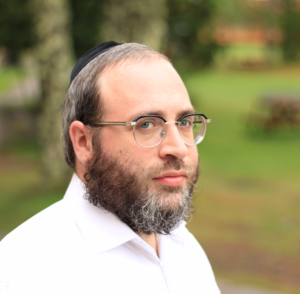Trump’s New Tax Bill: Good for the Jews?

Buy now, pain later? How Trump’s tax bill impacts observant Jews

Almost a year into office, President Donald Trump scored a major legislative accomplishment last week when Congress passed a massive tax reform bill that will result in immediate tax cuts for over 90% of middle-income Americans.
What remains to be seen is whether the middle class will benefit from the new tax code in the long run.
While praising the passage of the Tax Cuts and Jobs Act, Orthodox Jewish advocacy groups pointed to several areas that may hurt the fast-growing community, such as the removal of personal exemptions and the limitations placed on the deductibility of state and local taxes. “That is going to hit the frum community in a very negative way,” Abba Cohen, vice president for federal affairs and Washington director of Agudath Israel of America, told Mishpacha. “While there are improvements in the child tax credit, no one should think they compensate for what could potentially be lost by eliminating the personal exemption.” Cohen, who noted that many Orthodox Jews live in states with high local taxes, said the ability to deduct state and local taxes, including property tax, had been a “big boon to the community.
“To the extent that a good many of our members of the community are middle income, it’s not clear how much this law is going to help us, considering the loss of the personal exemptions and some of the other deductions,” Cohen said. Still, he added, most members of the community will “start off in a better place” because of the bill’s provisions.
Deductions related to charitable giving also change under the new law. The Jewish Federations of North America noted in an analysis that the doubling of the standard deduction in the new tax law could have a negative effect on giving. “These provisions will greatly decrease the number of taxpayers [who] itemize as well as ‘increase the cost of giving’ for those who continue to itemize,” the organization said.
The Orthodox Union also expressed disappointment that a provision that would have made a portion of tuition payments tax deductible was removed from the bill just hours before the Senate voted on the package.
Nonetheless, Nathan Diament, the OU’s executive director for public policy, said the OU managed to expand the use of 529 education savings plans to pay for K-12 education expenses, including those at non-public schools, while preserving the tax-exempt treatment of “qualified tuition reductions” (QTR) to recruit and retain teachers to work in their schools by offering tuition discounts. Coverdell education savings accounts, which already applied to K-12 education, were also maintained in the tax code, giving private school parents the option to receive a tax benefit for tuition.
According to Agudah’s Cohen, some parents will be able to use the 529 plans to pay for yeshivah education. “We viewed it as sort of a piece in a larger puzzle. There’s not going to be a one-size-fits-all school choice plan. We saw it as important as a potential help to certain segments of the community.”
Louis Loketch, managing partner at New York’s Loketch & Partner accounting firm, said that most people will benefit from the changes. “Even the people who have state and city and real estate tax deductions oftentimes lose that benefit because of the alternative minimum tax, which does not allow state and city and real estate taxes to be deducted. So, the net effect of the new tax law will be an overall benefit for people in our community,” Loketch said.
Overall, the bill expands the child tax credit to $2,000 per child. And by raising the income threshold at which the credit phases out, and by adding other qualifying dependents, the bill will allow more middle and upper-income families to claim the credit.
A number of Jewish American groups also praised the bill for retaining the Johnson Amendment, a law that prohibits tax-exempt entities from making political endorsements. The OU and Agudath Israel have long argued that the amendment advantageously insulates synagogues and clergy from political pressure.
(Excerpted from Mishpacha, Issue 691)
Oops! We could not locate your form.













